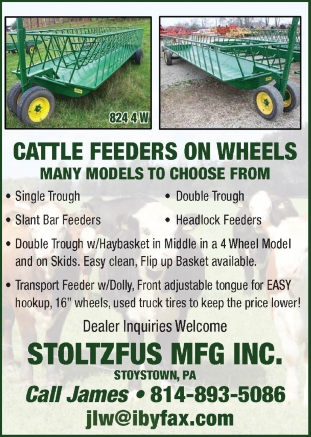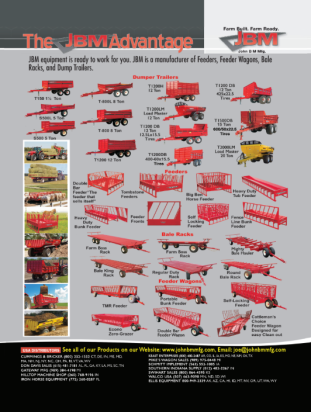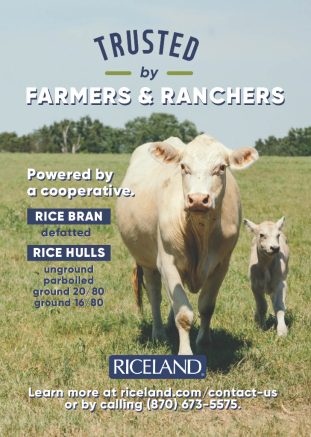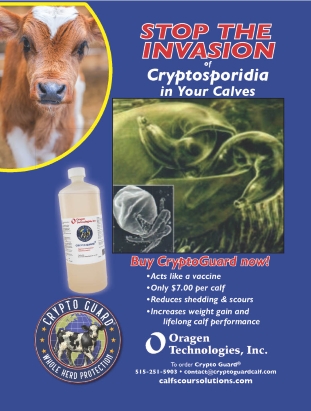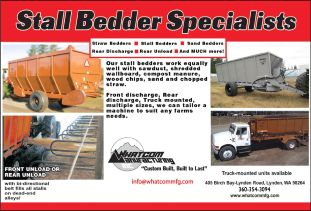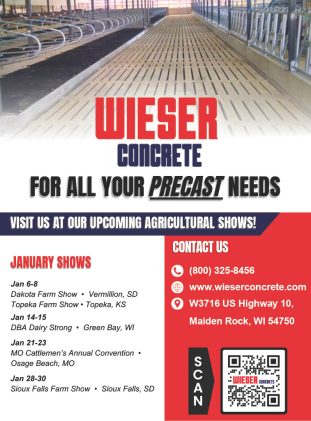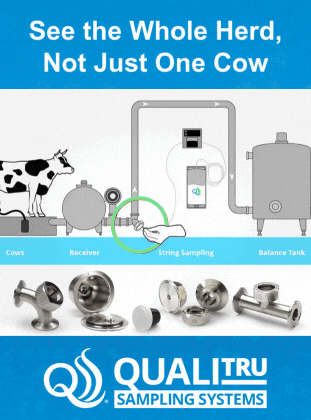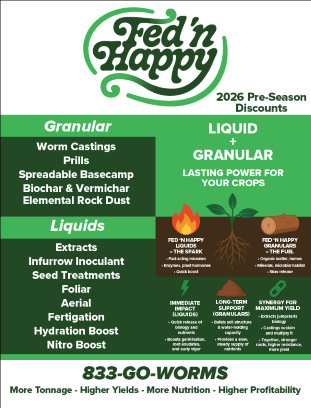Podcasts
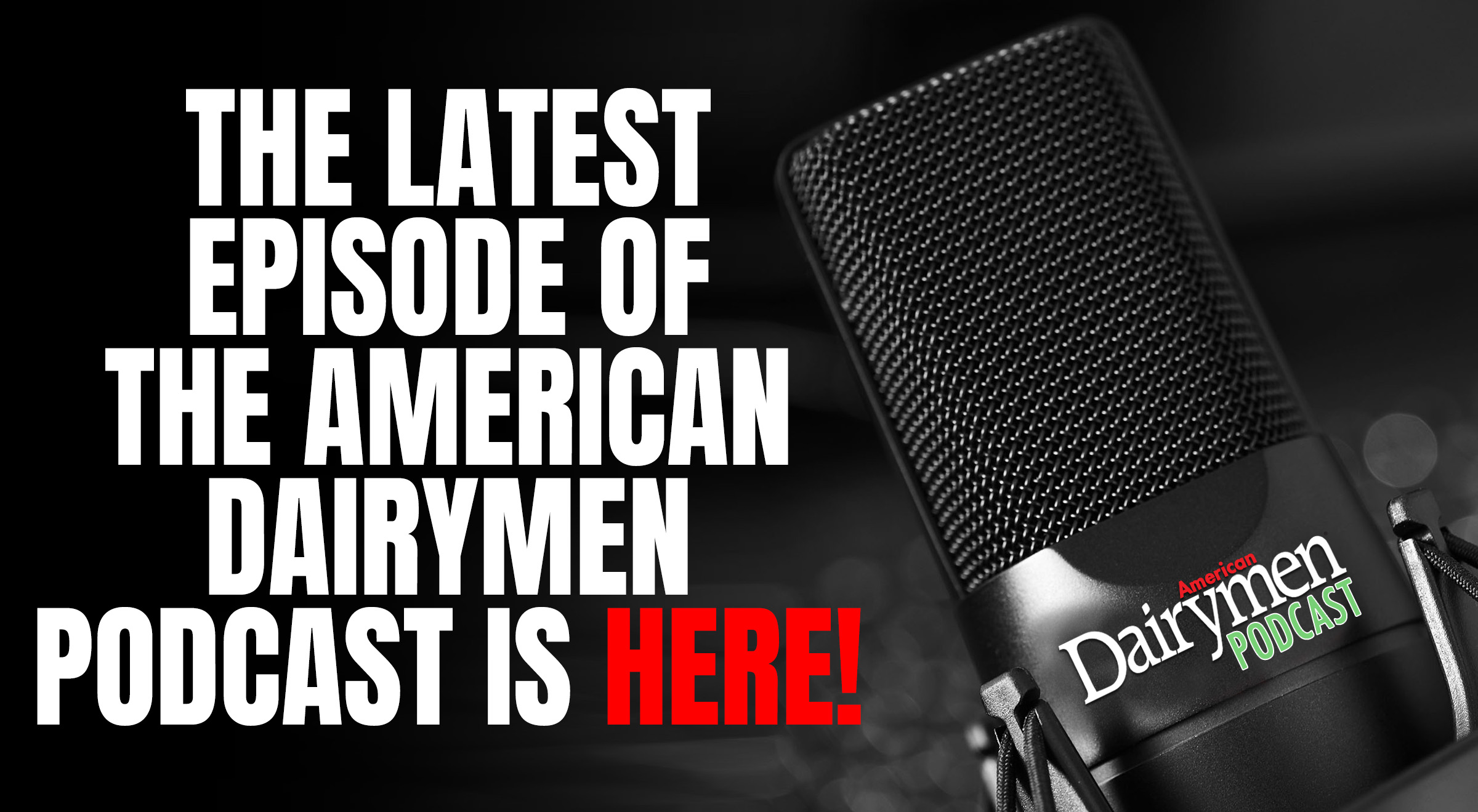
Check back for the official launch date of the American Dairymen Podcast. We are excited to roll out the podcast that will be covering just about every topic that concerns the American dairy farmer.
Previous Episodes
Kalf Kozies with Georg Weitzel
Welcome back to the American Dairymen Podcast. Just ahead, we have Dustin Hector, he’s the Host of the American Dairymen Podcast, and he sits down with Georg Weitzel, with Crystal Springs Ranch and Kalf Kozies. In this episode, Georg and Dustin will dive into the Kalf Kozies product and how it was designed to help calves out in the cold. 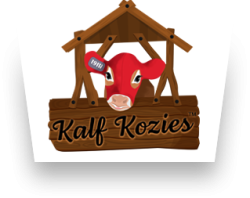
Georg explains that his family ranch calves out around 500 cows in January, February, and March, often in temperatures reaching 30 to 40 degrees below. Calves are usually born outside and then brought into the barn, but limited barn capacity means they can only stay inside for about 24 hours before returning outdoors. Even when calves were dried off, their ears frequently froze. Over the years, Georg and his family tried multiple existing products, but none performed the way they needed.
That led Georg’s wife, Sarah, to design the Kalf Kozies. It is a custom-woven, water-resistant fleece hat that slips over the calf’s head, with dedicated ear pockets and eye holes. The material has stretch built into the right areas for a secure yet comfortable fit. Adjustable snaps on the neck band allow a single hat to fit a wide range of calf sizes, from small preemies to large beef calves. To solve the issue of losing visual identification when all the calves were wearing hats, they added a leather patch on the outside that can be marked with a reusable grease pencil.
Georg emphasizes that comfort and functionality distinguish Kalf Kozies from competing products. The design allows the ears to remain in their natural forward position, so calves stay comfortable, active, and inclined to get up and nurse. The fabric wicks moisture away instead of trapping it, helping ears naturally toughen over several days of use. The ear pockets also help keep the hat in place, reducing the need for constant adjustment. Economically, preventing frozen ears can avoid substantial market discounts on calves, so a single saved ear can more than pay for the product. Georg notes that dairy producers use the hats to safely house multiple calves together and that calves wearing Kalf Kozies tend to be warmer, happier, and healthier throughout the winter.
For previous episodes of the American Dairymen visit our website: https://americandairymen.com
American Dairymen Podcast is Sponsored By:
Herd Health Management Plans Cattlemen and Veterinarians
Welcome to Cattlemen and Veterinarians: A Partnership in Bovine Health. Today, join hosts Gale McKinney and Dr. Shynia Peterman as they discuss Herd Health Management Plans with Dr. Jason Banta with Texas A&M University. 
The conversation opens with timely news on trade restrictions related to disease outbreaks, reinforcing the ongoing importance of biosecurity for preventing the introduction of pests and infectious agents into herds, especially via newly purchased livestock.
Dr. Banta explains that proper herd health plans are critical for maintaining profitability and animal welfare because they reduce illness, treatment costs, reproductive losses, and overall mortality. He emphasizes that these plans should be tailored for each operation but universally include key components: biosecurity, vaccination, internal and external parasite control, and proper nutrition. Quarantine and testing of new arrivals are stressed as vital to preventing the spread of diseases like BVD PI and trichomoniasis. Dr. Banta advises working with veterinarians to determine the best vaccine protocols, highlighting that while some elements (such as Clostridial and respiratory viral vaccines) are foundational, protocols may need to be adjusted for local risks or herd-specific needs. The pursuit of a balanced approach to parasite control is also advocated, with strategies varying by region, rainfall, and forage growth patterns.
Nutrition is described as a frequently overlooked but crucial aspect of herd health, with energy and protein intake more vital to immune function than minerals. Nonetheless, having a balanced mineral supplementation plan is important, as excesses can be as harmful as deficiencies.
The podcast also addresses the importance of consistent record-keeping, suggesting technology or simple tools according to preference, and encourages producers to seek out educational resources and relationships with experienced cattle veterinarians. As part of holistic ranch management, herd health plans should be periodically reviewed and integrated with other operational plans, such as breeding, finance, and staffing. Overall, the experts encourage proactive development and regular updating of herd health plans, emphasizing the benefits of collaboration and continued learning for the long-term success of cattle operations.
Cattlemen & Veterinarians: A Partnership in Bovine Health
For Future or Previous episodes visit our websites:
Cattlemen and Veterinarians: A Partnership in Bovine Health Sponsored by:
Cattlemen & Veterinarians Managing Cattle in Winter Temperatures
Welcome back to Cattlemen & Veterinarians: A Partnership in Bovine Health. Today, Kade and Dr. Peterman discuss some techniques to help take care of your cattle in cold weather. 
The conversation highlights the paramount importance of adequate shelters and bedding for cattle as winter sets in. Dr. Peterman outlines how structures such as barns, three-sided sheds, and even simple windbreaks from natural or man-made materials can help shield herds from biting winds and cold. Good bedding, particularly straw, not only provides insulation but also helps prevent cold-related injuries like frostbite in vulnerable animals. Bed maintenance is discussed, with frequency largely depending on the number of cattle and how rapidly the bedding gets soiled—sometimes daily or weekly.
Nutrition is emphasized as a crucial aspect not to be compromised. Dr. Peterman stresses that cattle should enter winter with an appropriate body condition score, and as the temperature drops, high-energy feeds become vital. She explains that cold stress increases animals’ energy needs, and gradual dietary adjustments should accommodate these demands. Clean, unfrozen water is another critical need, calling for vigilance with ice and heating devices.
The episode further covers health monitoring, spotlighting signs of cold stress and reinforcing the importance of timely vaccinations, particularly for disease prevention in newborn calves. Listeners’ questions lead to advice on managing breed-specific genetic issues in Wagyu cattle, the careful acclimation required when moving cattle from warm to cold climates, and the comparative merits of dry lot wintering versus winter grazing systems. Dr. Peterman recommends nutritional testing and gradual feed changes for supplements like alfalfa and dried distillers grains. She concludes with tips for managing hazards like frozen ground to safeguard cattle health.
Cattlemen & Veterinarians, A Partnership in Bovine Health
For Future or Previous episodes visit our websites:
Cattlemen and Veterinarians: A Partnership in Bovine Health Sponsored by:
A.N. Martin Systems with Lydell Martin
Welcome back to the American Dairymen Podcast. Just ahead, we have Dustin Hector, he’s the host of the American Dairymen Podcast and he chats with Lydell Martin with A.N. Martin Systems. 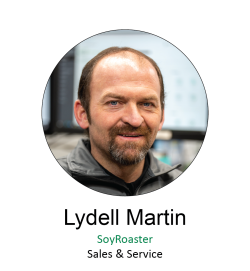
Lydell shares his background, starting on a dairy farm and progressing into grain equipment and automation, ultimately leading him to develop innovative roasting systems for A.N. Martin Systems. Though he now works independently, he continues to consult and provide technical support for A.N. Martin Systems, focusing on serving the unique needs of dairy, crop, and feed producers.
The conversation delves into the evolution of soybean roasting in the dairy sector, emphasizing how motivations for roasting have shifted from primarily reducing protein costs to myriad benefits including lowering fat expenses and enhancing milk component production. Lydell highlights the significance of high oleic soybeans, which are notably different from standard varieties due to their lower linoleic acid and higher good fat content, making them more suitable and digestible for dairy herds.
Martin describes various roasting technologies, comparing the advantages and pitfalls of flame, hot air, and auger-type roasters. He explains the development of an advanced system that uses a mixing auger to ensure even roasting and longer retention times at lower temperatures, minimizing fire hazards while maximizing automation and labor efficiency. The system incorporates cooling and milling processes, with a preference for hammer mills over roller mills, allowing for customized grind sizes according to each farm’s requirements and feeding programs. Martin stresses the system’s adaptability and reliability, offering consistent quality while easing operational burdens on producers.
The episode concludes with the recognition that effective automation, safety, and flexibility are driving innovations in grain roasting and dairy nutrition, equipping producers to make more efficient and cost-effective feed choices for their herds.
A.N. Martin
For previous episodes of the American Dairymen visit our website: https://americandairymen.com
American Dairymen Podcast is Sponsored By:


